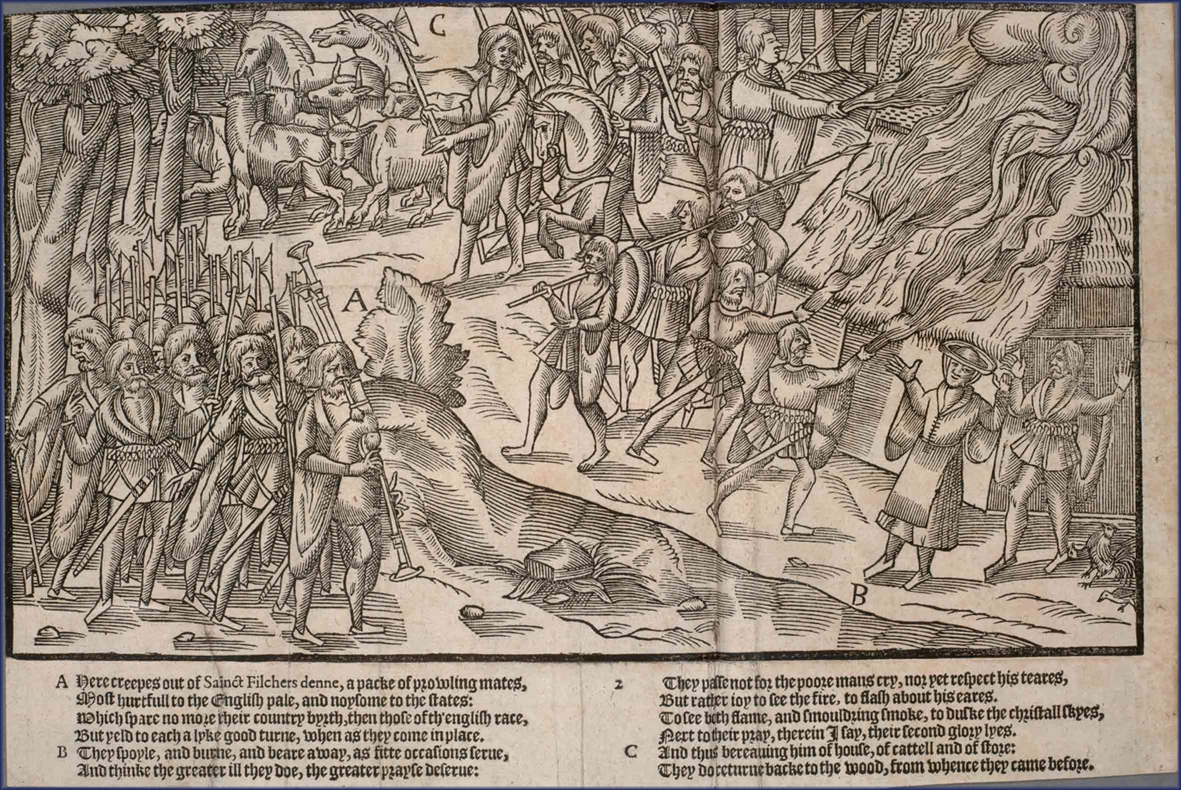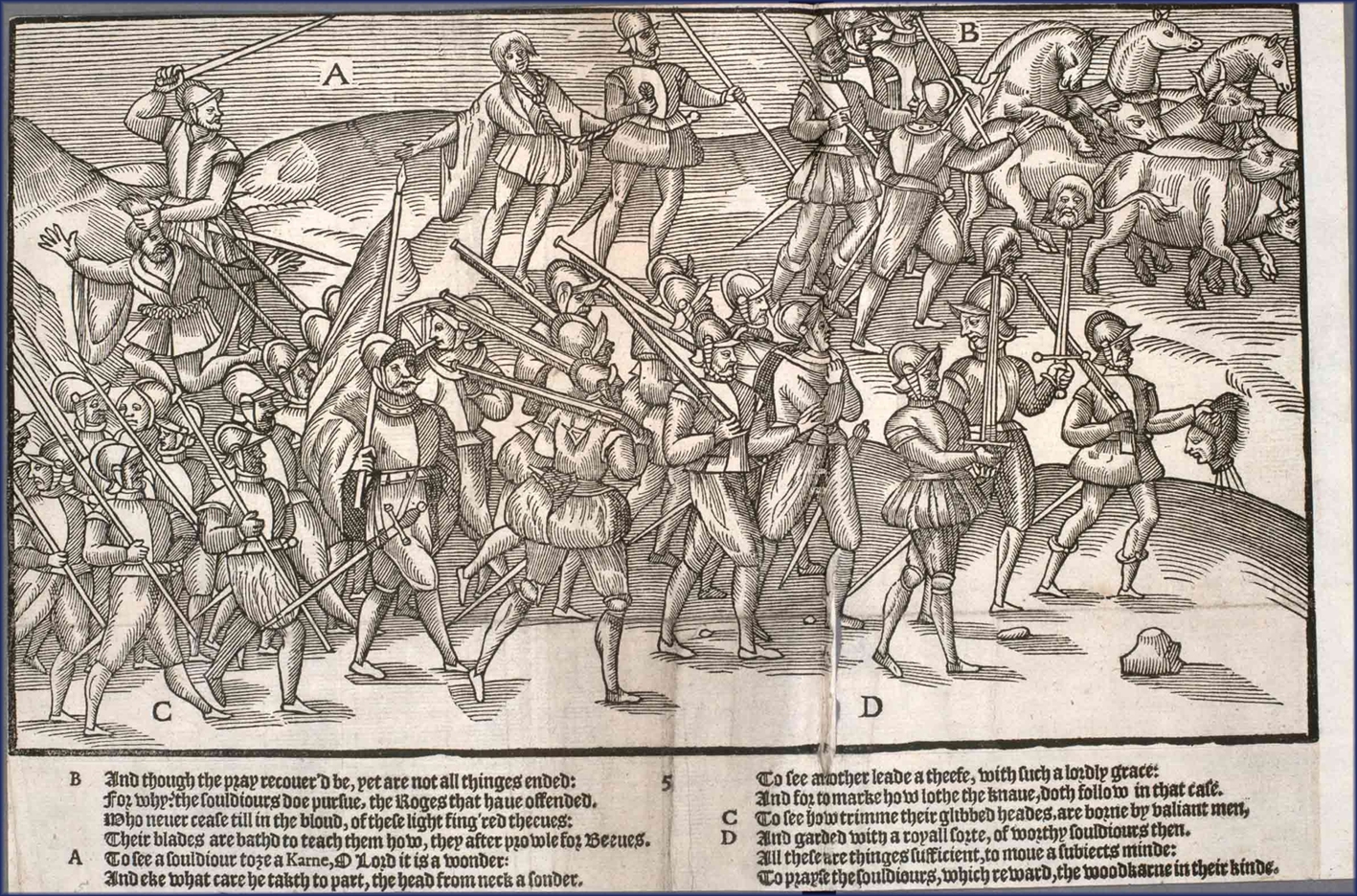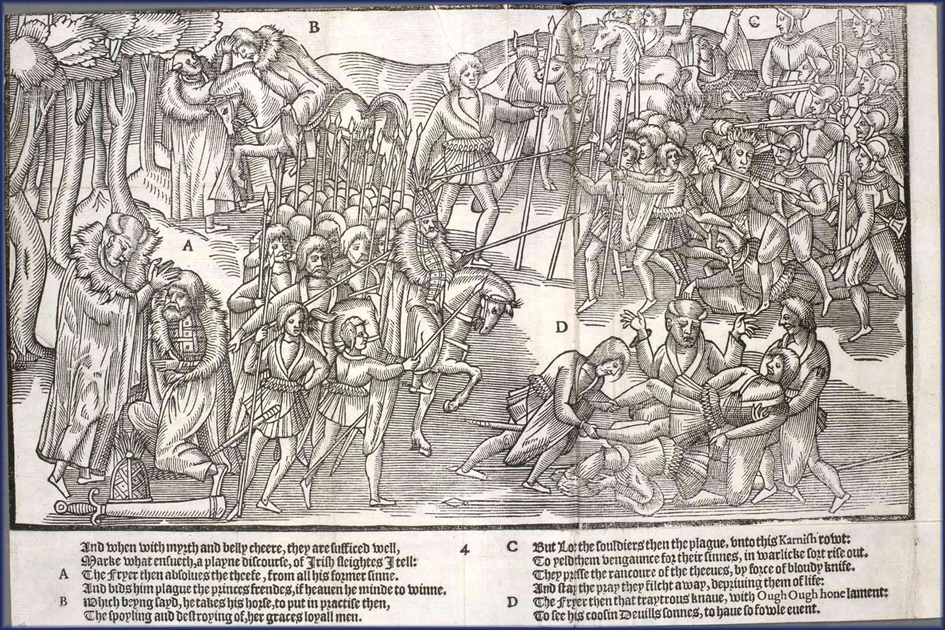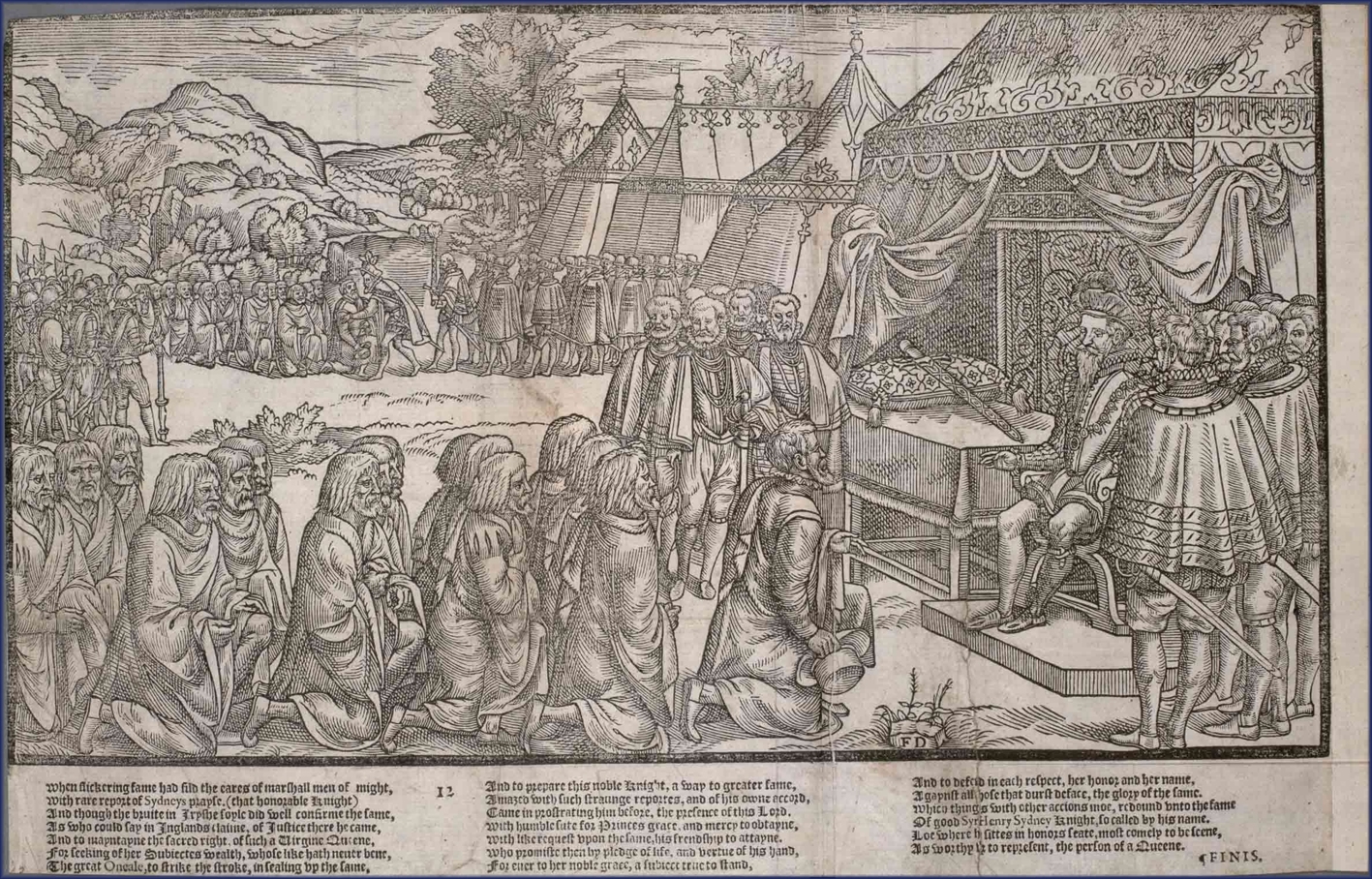
Try Amazon Audible Premium Plus and Get Up to Two Free Audiobooks
Derricke's The Image of Irelande (1581)
with modern English spelling.
or Derricke's The Image of Irelande with Olde English spelling
 | |||
| A B |
Here creeps out of Saint Filcher's den a pack of prowling mates, Most hurtful to the English paleThe strip on the east coast of Ireland occupied by the English, and noisome to the states. Which spare no more their country birth, than those of the English race, But yield to each a like good turn, when as they come in place. They spoil, and burn, and bear away, as fit occasions serve, And think the greater ill they do, the greater praise deserve: | C |
They pass not for the poor man's cry, nor yet respect his tears, But rather joy to see the fire, to flash about his ears. To see both flame, and smouldering smoke, to dusk the crystal skies, Next to their prey, therein I say, their second glory lies. And thus bereaving him of house, of cattle and of store, They do return back to the wood, from where they came before. |
 | |||
| A C B |
Now when into their fenced holds the knaves are entered in, To smite and knock the cattle down, the hangmen do begin. One plucks off the Ox's coat, which he even now did wear, Another lacking pans, to boil the flesh his hide prepare. These thieves attend upon the fire for serving up the feast, And Friar Smellfeast sneaking in, does press amongst the best. | D |
Who plays in Romish toys the Ape, by counterfeiting PaulSaint Paul's letters in the christian bible; For which they do award him then, the highest room of all. Who being set, because the cheer is deemed little worth, Except the same be intermixed and laced with Irish mirth. Both Bard and Harper is prepared, which by their cunning art, Do strike and cheer up all the guests with comfort at the heart. |
|
Over to the right, the two guests mooning are saying: Aspice spectator sic me docuere parentes ("This is how my parents taught me to behave as a spectator") and Me quoque maiores omnes virtute carentes ("All older people lacking in goodness taught me the same") In A Guide to Early Irish Law (1988), Fergus Kelly suggests that the men are braigeteóirí (professional farters). | |||
 | |||
| B A |
And though the prey recovered be, yet are not all things ended: For why: the soldiers do pursue, the Rogues that have offended. Who never cease till in the blood, of these light fingered thieves. Their blades are bathed to teach them how, they after prowl for Beeves. To see a soldier tozeTo pull violently a Kern, O Lord it is a wonder: And eke? what care he takes to part, the head from neck a sunder. | C D |
To see another lead a thief, with such a lordly grace: And for to mark how loathe the knave, does follow in that case. To see how trim their glibbedThese wood-karne went with glibbed heads, or wearing long bushy hair hanging over their eyes, disguising them, and serving as a fit mask for a villain. heads, are borne by valiant men, And guarded with a royal fort, of worthy soldiers then. All these are things sufficient, to move a subject's mind: To praise the soldiers, which reward, the wood-kern in their kind. |
 | |||
|
And marching on in warlike wise, set out in battle array, He does pronounce by heavy doomjudgement, the enemy's pride to lay, And all the rabble of the foes by bloody blade to quell, That rising shall assist the sort which traitorously rebel, Delivering them to open spoil from most unto the least, And bid them welcome heartily unto that golden feast. |
For what is he of all the Kern, that may withstand her power, Or yet resist so great a Prince one minute of an hour. If he or they both tagge and rage for maintenance of their cause, Did venture to approach the field, to try it by marshal laws, Not one of this rebelling sort, that thinks himself most sure, Is able to abide the Knight, or presence his endure. | ||
 | |||
|
For if his valour once be moved revenge on them to take, Which do our sovereign Prince's laws, like beastly beasts forsake: Tis not the cruel stormy rage, nor gathered force of those, Nor yet the crooked crabbtree looks of greasy glibbedThese wood-karne went with glibbed heads, or wearing long bushy hair hanging over their eyes, disguising them, and serving as a fit mask for a villain. foes Can make him to revoke the thing his honour has pretended, But that Dame Justice must proceed against those that have offended. |
For Mars will see the final end of traitorous waged wars, To pluck the hearts of Rebels down, that lately pierced the stars. To yield them guerdonA reward or recompense for deserts by rigour of his blade, And with the same to gall their hearts, which such uproars have made. Lo, where it is in open sight, most perfect to be seen, Which shows the fatal end aright of rebels to our Queen. | ||
|
The town outside the castle gate is labelled Dublin. | ||||
 | ||||
| A |
When thus this thrice-renowned knight, has captive made and thrall, The furious force of frantic foes, and troop of rebels all; When he by marshal feats of arms has nobly them subdued, To Prince's DoomJudgement, whose heavy wrath, their treasons have renewed, When he their glory and their pride has trampled in the dust, And brought to naught, which do pursue the bloody rebel's lust; |
When he by conquest thus has won the honour of the field, And fame unto our Sovereign's Court report thereof does yield; And to conclude, when honour brave, his travels to requite, Has clothed him with eternal fame, meet for so great a Knight: When all these things are done and past, then does he back revert To Dublin, where he is received, with joy on every part. | ||
| ||||
Ve mihi misero ("Woe to miserable me")
and
Ve atque dolor ("Woe and sorrow")
¶FINIS.
The contents page for Derricke's The Image of Irelande (1581)






